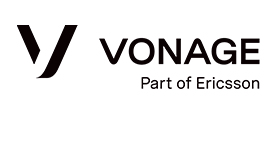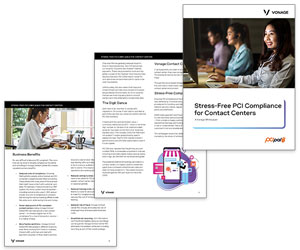David Evans at Vonage discusses the equalising power of cloud communications for SMEs, and explores how there’s no doubt that the COVID-19 pandemic has forced businesses of all sizes to drastically rethink their approach to digital transformation.
We have witnessed a significant shift in the way that business gets done, with success today driven by digital experiences and the ability to swiftly meet employee and customer expectations remotely, and effectively.
The global transition to a virtual or hybrid work environment is leveling the playing field for small and medium sized businesses (SMEs).
Secure, scalable, flexible cloud communication platforms that provide global engagement solutions across APIs (application programming interfaces), unified communications and contact centre innovations are empowering SMEs to operate and compete more effectively against larger enterprise counterparts like never before.
SMEs should therefore be keeping an eye out for communication providers that offer a wide range of scalable and flexible services and solutions including APIs, unified communications, and contact centre applications that enable remote work and remote delivery of services which at the same time make doing business easier and more cost-effective.
Cloud communications today can be seen supporting hybrid and remote work environments for SMEs across a variety of verticals – from education to telehealth and insurance, financial services to entertainment, and more.
The Pillars of a High Quality Communications Platform
Today, the market for cloud communications platforms is highly competitive, with solutions that cover all elements of a small business’s communication needs.
Typically taking the form of customisable Communications Platform as a Service (CPaaS) offerings, the best solutions enable SMEs to program in all types of communications inputs – voice, video, and messaging – as well as the ability to bolt on additional solutions, contact centre as a service (CCaaS) and further enhancements such as AI virtual assistants for contact centre agents, chatbots and more.
This means that a business’s communications platform can scale as it grows and as its needs evolve, enabling the enterprise to remain agile in the face of changing customer and business demands.
What makes this possible are APIs. These create the underlying functionality for CCaaS solutions around video, voice and messaging, and serve as a software tool used to control programmes. Essentially, APIs create sets of rules that allow applications to communicate with each other – they are the part of the server that receives requests and sends responses.
The job of the API is to simplify the complex data exchanged between these servers, and to make the interaction as seamless as possible for the end user. Today, when data is transferred between programs or applications, an API normally makes it happen.
When selecting the right cloud communications platform, SMEs should assess their prospective partner not only on their current communication functionality stack, but also on their commitment to continue driving transformative innovation within the sector, given the rapid change that the industry is prone to.
The Cloud Communications Platform as a Partner
Today, the value the right communications platform vendor can bring goes beyond technology and solutions.
By picking communications platform vendors who treat end-users as partners rather than just customers, SMEs have an opportunity to access a direct line of contact with the expert team of salespeople and engineers, who have a deep understanding of both their own company’s software as well as the partner business’s needs.
As a result they are able to access expert guidance and support whenever needed, and resolve issues quickly.
In this way, end-users can take advantage of service provider expertise to help build and fine tune their communications platform as well as associated integrations based upon their unique needs.
As far as SMEs are concerned, the world is their oyster when it comes to communications platforms. By picking a high quality cloud communications platform that not only offers significant functionality to keep up with modern use cases, but also provides ongoing support, small and midsize businesses will sharpen their competitive edge and tackle larger enterprises in their respective sectors, thus coming out ahead in an increasingly digital post-COVID world.
For more information about Vonage - visit the Vonage Website
Call Centre Helper is not responsible for the content of these guest blog posts. The opinions expressed in this article are those of the author, and do not necessarily reflect those of Call Centre Helper.
Author: Vonage
Published On: 18th Jan 2022
Read more about - Guest Blogs, Vonage






 Vonage is redefining business communications, helping enterprises use fully-integrated unified communications, contact centre and programmable communications solutions via APIs.
Vonage is redefining business communications, helping enterprises use fully-integrated unified communications, contact centre and programmable communications solutions via APIs. 

































